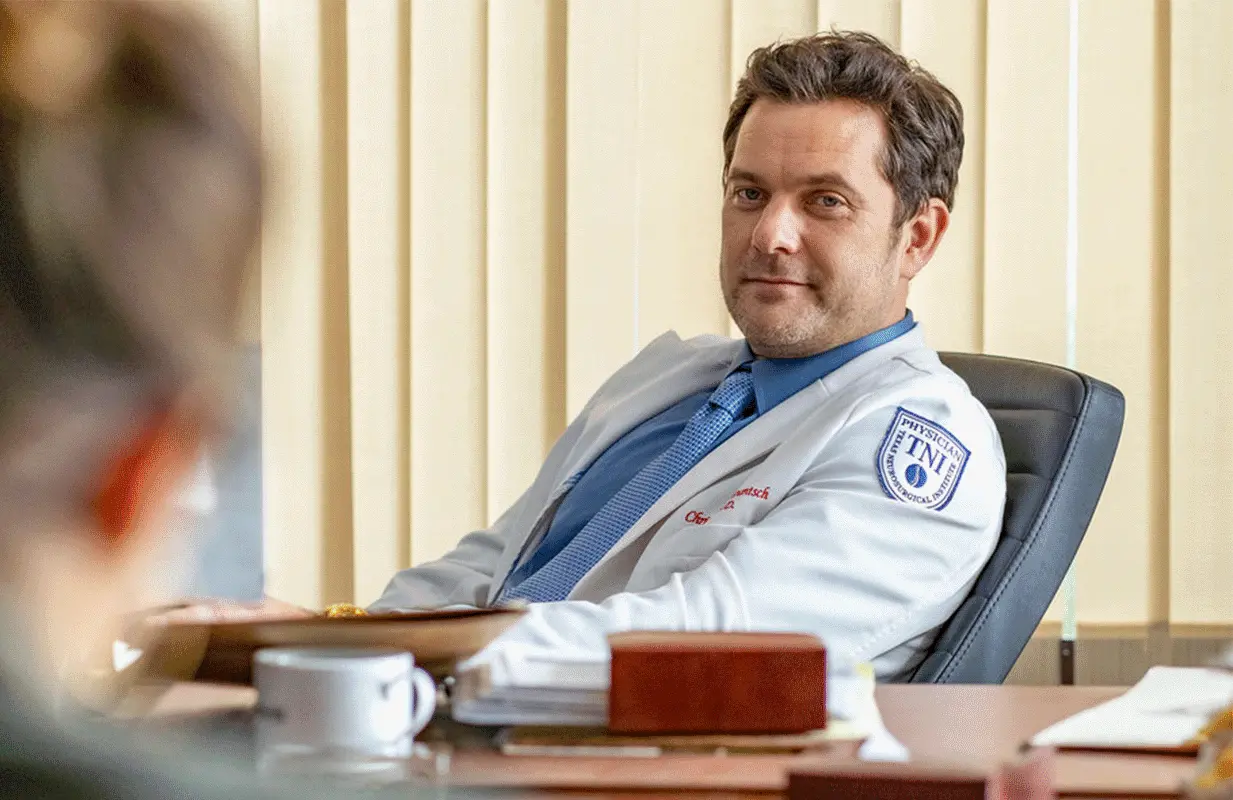Dr. Death Is a Whydunit With No Answers
-
 Joshua Jackson headlines Peacock's take on the true story of Dr. Christopher Duntsch. (Photo: Scott McDermott/Peacock)
Joshua Jackson headlines Peacock's take on the true story of Dr. Christopher Duntsch. (Photo: Scott McDermott/Peacock)In the world of true crime, there are two different types of cases: those with a clear perpetrator, and those without one. The latter category is rife for docuseries exploration, while the former lends itself to dramatization, as it’s far easier to re-create a crime on-screen when we know the main players. With the perpetrator identified, the drama shifts from “whodunit” to “whydunit,” and viewers are encouraged to follow along as a show, film, or podcast takes us inside the mind of the criminal.
Dr. Death, Peacock’s new eight-part limited series about disgraced Texas neurosurgeon Dr. Christopher Duntsch, wastes no time naming its villain. The drama opens with a shot of Duntsch, played by Joshua Jackson, sitting handcuffed to an exam table in prison, while his victims’ testimony is heard in voiceover. “I woke up in a nightmare,” one says. “I have a feeding tube attached to me with a bag,” says another. Of course, Duntsch’s criminality was never in doubt. As those familiar with the Wondery podcast that inspired the drama already know, the real-life Dr. Duntsch was accused of gross malpractice after more than 30 of his patients left his operating table seriously maimed, or — in the case of two patients — dead. In 2017, he was convicted of injury to an elderly person and sentenced to life in prison.
The criminal party identified, it would make sense for Dr. Death to turn its attention to the why of Dr. Duntsch’s case: why did he continue performing surgeries after so many of his patients were left paralyzed or permanently impaired? Why did he move from hospital to hospital? And why did he become a doctor in the first place?
These are the questions you'd expect a textbook “whydunit” like Dr. Death to at least try to answer, but it doesn’t seem particularly interested in doing so. The limited series briefly implies that Duntsch was unable to tell his right from left, but otherwise it pays little mind to his actual surgical abilities and/or his feelings about violating the Hippocratic Oath.
Instead it relies on flashbacks and multiple timelines to depict Duntsch’s early disappointments (a college football career gone wrong), his transition into medicine, his meteoric rise within the Dallas medical community, and his eventual demise. In one timeline we see him charm his way into business deals, new jobs, and relationships with women who deserve better; in the next, he’s a fallen, frenzied man hatching a comeback. Basic plot points explain how Duntsch got from one to the other, but Dr. Death never once explores what might have been going on on inside the neurosurgeon’s head.
While Duntsch’s motives may be opaque, those of his rivals — Drs. Robert Henderson and Randall Kirby, played in the series by Alec Baldwin and Christian Slater, respectively — couldn't be more explicit. Less than ten minutes into the first episode, Henderson and Kirby realize that they’ve both come across “Duntsch’s splatter painting,” and they ultimately team up with Michelle Shughart (AnnaSophia Robb), the prosecutor who put Duntsch behind bars. With Baldwin as the straight man and Slater as the goof, the duo’s mismatched relationship serves as one of Dr. Death’s lighter elements (if buddy-doctor comedies were a thing, these two would be first in line for a spinoff), although it’s often difficult to reconcile their banter with the gravity of the situation at hand.
Dr. Death presents Henderson and Kirby as devoted masterminds who brought down a skilled conman, but as portrayed in Dr. Death, they too seem uninterested in what makes Duntsch tick. “The question isn’t why he did it,” Henderson tells Kirby, as they sit in a bar that serves cocktails with paper umbrellas (Slater’s character later uses it to simulate sex, which should tell you everything you need to know about their dynamic). “It’s how he got away with it.”
But isn’t it the question? We know how Duntsch got away with his negligence: neurosurgeons bring in money, so hospital administrators looked the other way as the bad surgeries piled up. Dr. Death says as much in an early scene that sees Henderson confront Baylor Medical Center’s director. In real life, all four hospitals that employed Duntsch were hit with civil lawsuits from his victims. An opportunistic, exploitative healthcare system is nothing new, but a doctor who uses that corrupt system to purposefully maim his patients is.
When it comes to true crime, viewers don’t just want to rehash facts that have been publicly available for years. They want insight. Dr. Death seems to think it’s explaining Duntsch’s psychology, but it stops short of actually doing so. In that sense, the Peacock drama is full of empty promises, much like the bad doctor himself.
All eight episodes of Dr. Death hit Peacock on Thursday, July 15.
People are talking about Dr. Death in our forums. Join the conversation.
Claire Spellberg Lustig is the Senior Editor at Primetimer and a scholar of The View. Follow her on Twitter at @c_spellberg.
TOPICS: Dr. Death, Alec Baldwin, Christian Slater, Joshua Jackson